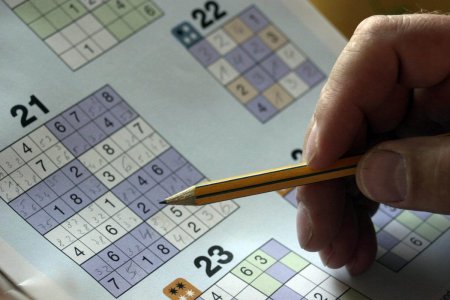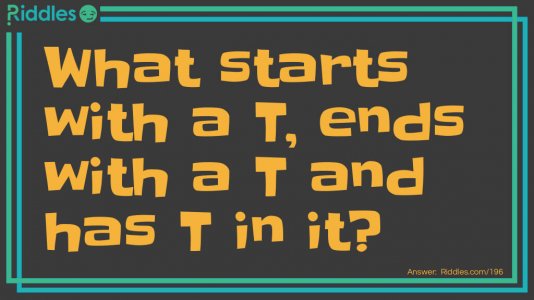SDC Rewards Member
Upgrade yours now
How to Stay Mentally Sharp in Retirement: Games to Keep Your Brain Young
How do you stay mentally sharp in retirement? It’s a question many of us ask ourselves as we get older. As we age, our memories may become more difficult to recall. Many people believe that once you retire, your mental sharpness declines. However, that doesn’t have to be the case!
While there’s no one-size-fits-all answer, there are certain things we can do to keep our minds active and engaged. And one of these is exercising your brain through games, riddles and other mental exercises.
It turns out that puzzles and number games are more than just a pastime. According to new research, filling in the correct numbers and letters in Sudoku and crossword puzzles has mental benefits.
What are ‘brain games’?
Brain games are activities that help players to practice specific cognitive skills and improve their memory, attention span, logic, and fast thinking. These games can be puzzles, video games, or board games, and they come in varying degrees of difficulty. While they are fun to play, they also have some added benefits for your brain—helping you develop problem-solving and reasoning skills, improving your eye for detail and boosting your abstract thinking abilities.
Research shows that brain training games can improve cognitive skills for older adults and help them perform day-to-day tasks such as managing finances and shopping. Researchers found that playing a daily 10-minute game challenging reasoning and memory skills could benefit older people.
Here are some examples to get you started:
1. Crosswords and other word games
Crossword puzzles are among the most popular puzzles enjoyed by people of all ages. They can be challenging and frustrating but also incredibly satisfying to complete. For many people, working on a crossword is the perfect way to unwind after a long day. If you’ve been working the crossword puzzles on the Sunday paper for years, I have good news for you.
Crosswords are a great way to keep your mind sharp. It’s a great way to exercise your brain and can help improve your memory, vocabulary, spelling, and problem-solving skills. Other word games like Scrabble and Boggle are also excellent for exercising your brain. According to one study, people who did crossword puzzles four days a week had a lower risk of developing dementia than those who didn’t.
Many crossword games are available online or as a mobile application, but we've created a fun and exciting game called OzWord, specially curated for our SDC members. You can play it on your computer, tablet or mobile phone. This game is designed to improve your English vocabulary and spelling. Have a go at it here.
2. Sudoku
If you're looking for a numbers-based puzzle that will really get your brain working, Sudoku is the perfect game for you! Sudoku is a puzzle that has been around for centuries, and it's only getting more popular. The object of Sudoku is to fill in a 9×9 grid so that each column, row, and nine 3×3 boxes contains all of the digits from 1 to 9.
Sudoku is a great way to improve your logic and problem-solving skills, and it's also a lot of fun! Several scientific studies have been conducted on how Sudoku and other number games can sharpen the mind.
According to research conducted by the University of Exeter and King's College London, adults aged 50 and over who play puzzles such as crosswords and Sudoku regularly tend to have better brain function.
Another study published in the International Journal of Geriatric Psychiatry looked at the connection between number-puzzle use and cognitive abilities. The study found that people who did more number puzzles had better memory, attention, processing speed, and executive function. The study does not prove that number puzzles cause these changes, but it does suggest that number puzzles could be helpful for people as they age.
Train your cognitive skills with our Sudoku puzzles here.
3. Memory and pattern recognition games
If there's one thing people would like to sharpen while aging it’s their memory. As we age, it's not uncommon for our memory to start to fade. We may find it more difficult to remember people's names, where we put our keys, or what we had for breakfast. One way to help keep our memory sharp is by playing memory games. These games can be played online, in a book, or with a group of friends. By playing these games, we are giving our brain a workout and helping to keep our memory sharp.
There are games you can play to help improve your memory. These include classic games such as matching games, jigsaw puzzles, and ‘Concentration’, which help you remember and repeat patterns. There are many benefits to puzzles, especially for older adults.
According to Dr Julie Brody-Magid, clinical director of the Memory Disorders Assessment Clinic at Harvard-affiliated McLean Hospital, puzzles can help improve brain skills, memory, and overall brain health. One study showed that jigsaw puzzles could help keep minds sharp as we age. Another study revealed that jigsaw puzzles could help older adults maintain processing speed, reaction time, decision-making, and short-term memory. In a Cambridge University study, researchers found that people who played an online pattern game for two hours a week improved their day-to-day memory when tested.
And with that, we’ve created a game to sharpen your memory recall called, ‘The Historical Figures.’
4. Riddles
We know that a lot of you absolutely love riddles! And who can blame you? They’re a fun way to test your brain power and see how quickly you can come up with an answer. The feeling of satisfaction comes with finding the answer to a puzzle that’s been bugging you for hours.
If you love riddles, then we have some good news! Did you know that there are many benefits to solving riddles?
For one, riddles can help improve your problem-solving skills. By thinking creatively to come up with an answer, you’re training your brain to be better at solving problems in general. Additionally, riddles can help improve mental speed and thought processes by enhancing connections between brain cells. They also work especially on short-term memory, which can help us remember shapes and colours and visualise many things we encounter daily.
So, if you’re looking for a way to improve your memory and problem-solving skills, try solving some riddles. Start with our riddles here in our forum. Browse through the different categories, and see if you can find the answer to each one. We also include a riddle in our Monday, Wednesday and Friday newsletters, so be sure to check those out every morning.
5. Trivia games
Trivia is more than just a fun way to pass the time – it can actually be beneficial to your brain health! Research has shown that older adults who frequently participate in intellectually and socially engaging activities, such as trivia have higher cognitive function than those who don’t.
By answering questions and learning, you can improve your cognitive skills. Just like exercising your body, exercising your mind by retaining information about topics you’re interested in can allow you to expand your intelligence and improve your mental capabilities. This can lead to greater creativity, innovation, and problem-solving skills. Plus, you can use the new facts you’ve learned to impress friends and family.
When you play trivia games, you can also enhance your socialisation opportunities. What better way to get to know your friends and neighbours than through friendly competition? Playing games allows the chance to foster conversation and connection.
These are why we include a trivia question in every issue of our newsletter! So you can stay sharp and have a little fun too. There are popular trivia games like Jeopardy, Trivial Pursuit, and Who Wants to Be a Millionaire. You can also find trivia games online, on your phone, or even at local pubs and community centres.
So there you have it! Five fun and exciting games to help keep your mind sharp in retirement. These games are not only a great way to pass the time, but they also have some added benefits for your brain, including improved memory, attention span, logic, and fast thinking. So why not give them a try? You might just be surprised at how much you enjoy them.
Last edited:










